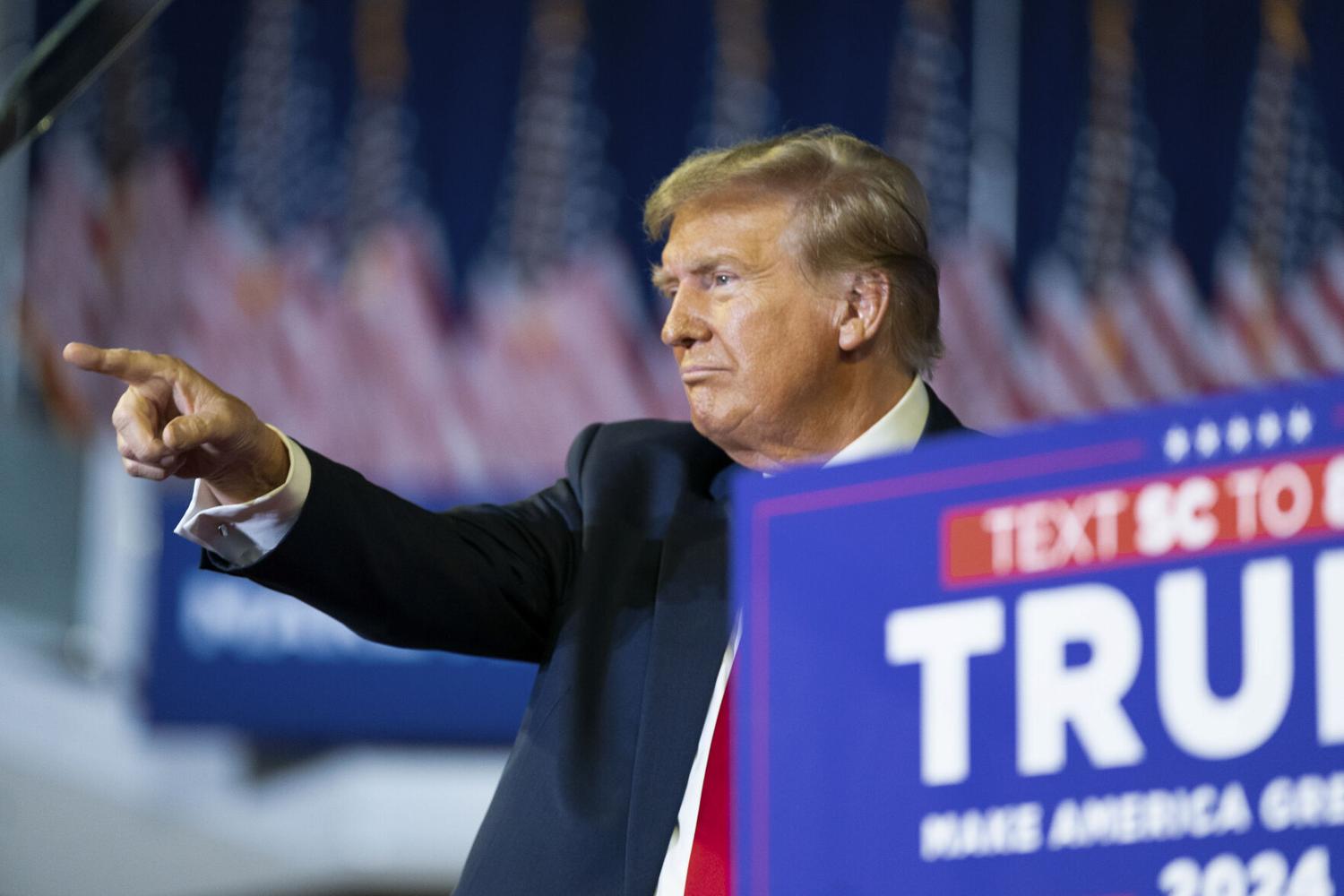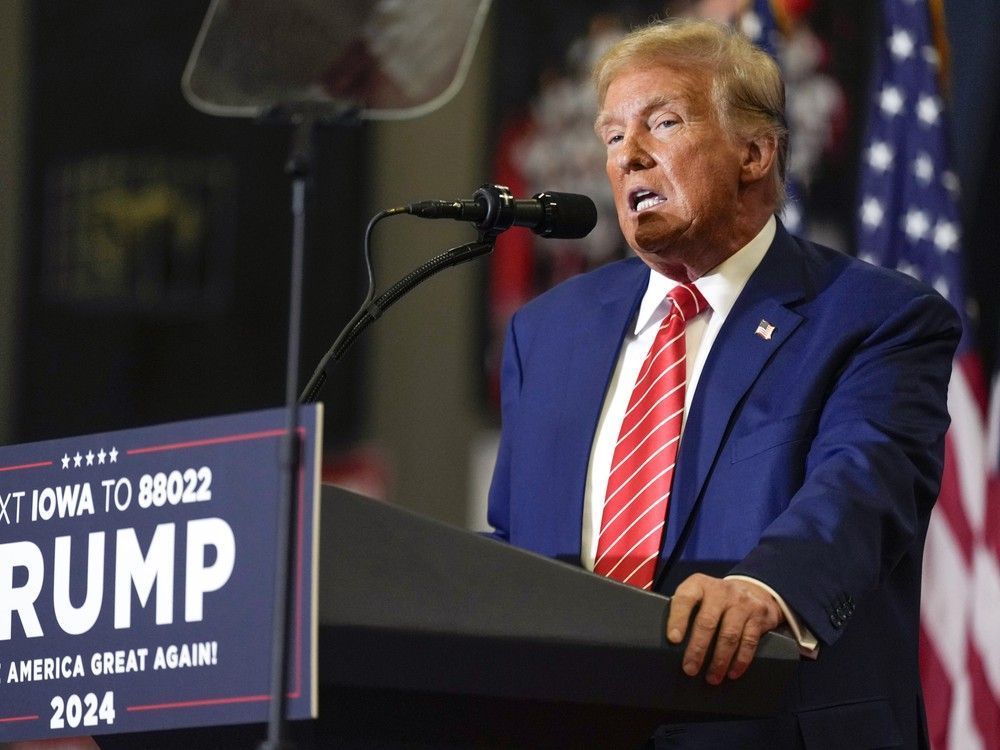






The normalization of actions and ideas once viewed as outrageous and counter to democratic values is a troubling development in American policy and politics [415b3f40]. This phenomenon is exemplified by Donald Trump's presidency and the acceptance of his lies and misdeeds. Despite his controversial actions and policies, some Americans view him as a centrist and are willing to overlook his radical shifts in policy [6519a4eb]. The support Trump received from Wall Street and corporate America, with some leaders praising his stance on issues like NATO and immigration, further contributes to this normalization [6519a4eb]. However, this normalization is dangerous, as a second-term Trump presidency could lead to vengeful and dictatorial behavior [6519a4eb]. The article warns of the potential threats to democracy and the erosion of democratic values [6519a4eb]. The decline of basic norms in American democracy would shock our forebears.
In a letter to the editor published in the Buffalo News, the author criticizes the idea of returning to 'normalcy' under Donald Trump's presidency [513a67d6]. The author questions the definition of normalcy and highlights various negative aspects of Trump's presidency, including seeking revenge on his opponents, increasing the national debt by $8.4 trillion, facing criminal charges, attempting to overthrow the election, inciting a riot, and defaming individuals [513a67d6]. The author also mentions Trump's actions towards dictators, demeaning allies, and putting democracy at risk [513a67d6]. The author concludes by urging readers to reject Trump's normalcy and vote for change [513a67d6].
The article 'Signal in the noise: Trump’s authoritarianism must be top of mind' from the New York Daily News further explores the concept of 'normalcy bias' and its dangers [6c1d5e99]. The article highlights how normalcy bias can lead to underestimating the likelihood of worst-case scenarios, using examples such as the Iraq and Afghanistan campaigns, the economic meltdown, climate change, and the COVID-19 pandemic. The article then focuses on Donald Trump and the upcoming showdown between him and Joe Biden. It emphasizes that we now know more about Trump's willingness to secure his power and subvert the rule of law, citing the events of January 6th and his attempts to nullify the voters' choices. The article mentions Trump's explicit statements about implementing the 'termination' of parts of the Constitution and being a 'dictator' on his first day in office. It also highlights his plans to utilize federal law enforcement to pursue political enemies and deploy the military widely across the country. The article warns against normalcy bias and urges the American public to take Trump's authoritarianism seriously and stop him [6c1d5e99].
The New York Times is accused of sanitizing Trump's incendiary rally in Ohio by paraphrasing his comments and not providing the full context [04ad277e]. The article criticizes the Times for not reporting on Trump's inflammatory comments, such as his derogatory remarks about Fani Willis and his prediction of a 'bloodbath' if he loses the election. The author questions why the Times is downplaying Trump's rhetoric and suggests that corporate interests or a desire for access to powerful people may be influencing their coverage [04ad277e]. The article calls for readers to express their dissatisfaction with the Times and consider seeking news from other sources [04ad277e].
In a recent opinion piece published by Bloomberg, Timothy L. O'Brien argues against normalizing Trump's behavior and specifically highlights his threats of violence [15f01bf4]. O'Brien references a video posted by Trump on social media, featuring an image of President Joe Biden hogtied and held hostage in the back of a pickup truck. O'Brien states that Trump's constant appeals to malice and division are an assault on the foundations of a civil society. He emphasizes that Trump's behavior should not be dismissed as mere tomfoolery, as it is more juvenile and vicious than that of an average former president [15f01bf4].
The article 'We need to talk about white America’s 'victim mentality'' from TheGrio discusses the concept of white America's 'victim mentality' in light of the outrage over Donald Trump's conviction [08a38e3c]. The author highlights the reactions of white Americans to the verdict and their perception of discrimination against white people. The article argues that the victim mentality is deeply ingrained in American culture and impedes racial progress and equality. It also explores historical examples of white victimhood and its impact on various aspects of society. The author calls for white people to take responsibility for their actions and respect the rule of law. Overall, the article challenges the notion of white oppression and questions white people's understanding of equality [08a38e3c].
Sources:
[415b3f40] [6c1d5e99] [6519a4eb] [513a67d6] [04ad277e] [15f01bf4] [08a38e3c]